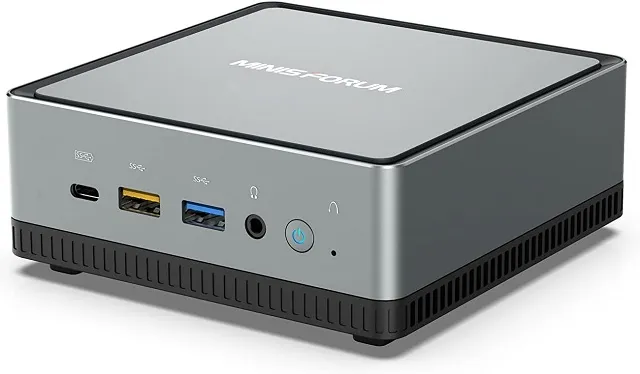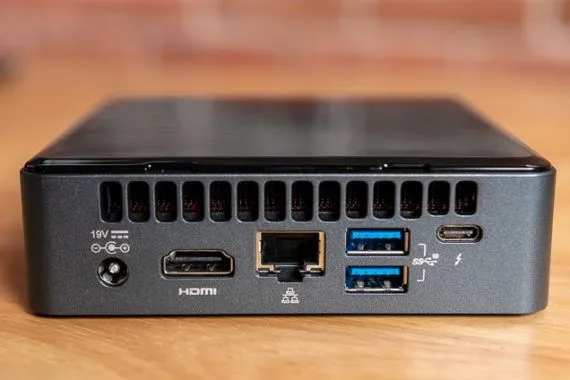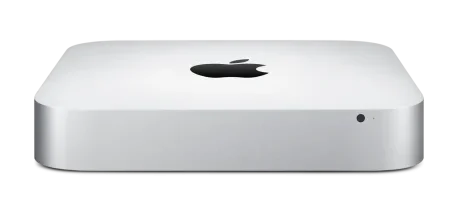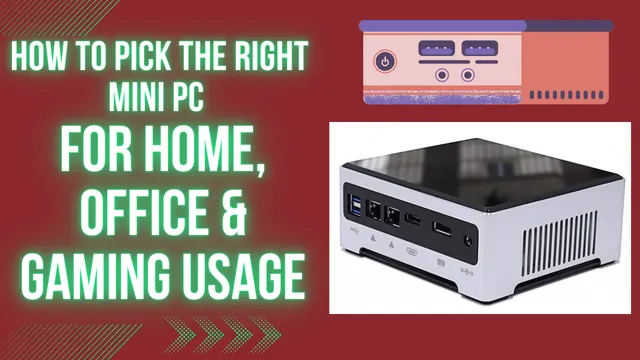How to Pick the Right Mini PC for Home, Office and Gaming Usage
In the evolving landscape of personal and professional computing, mini PCs have emerged as versatile and powerful alternatives to traditional desktop setups. Whether you’re looking for a compact solution for your home, a robust workstation for the office, or a high-performance machine for gaming, the right mini PC can meet your needs with efficiency and style. Selecting the ideal mini PC involves considering various factors such as performance specifications, connectivity options, and intended usage scenarios. How to Pick the Right Mini PC for Home, Office and Gaming Usage.

This guide will walk you through the essential aspects of choosing the perfect mini PC, ensuring that you make an informed decision tailored to your specific requirements. From handling everyday tasks at home to managing demanding office workloads and enjoying immersive gaming experiences, the right mini PC can be a game-changer in optimizing your computing environment.
Understanding Your Requirements
Home Use
For home use, your mini PC should handle everyday tasks such as web browsing, streaming, and basic productivity. Consider the following:
- Processor: A mid-range processor like Intel Core i3 or AMD Ryzen 3 is sufficient.
- RAM: 4GB to 8GB of RAM will handle most tasks comfortably.
- Storage: A minimum of 128GB SSD for fast boot times and smooth performance. Consider additional storage options if needed.
- Connectivity: Ensure it has sufficient USB ports, HDMI, and Wi-Fi capabilities.
- Operating System: Windows or macOS are user-friendly for home environments.
Office Use
For office use, your mini PC should support multitasking, productivity software, and perhaps virtual meetings. Key considerations include:
- Processor: An Intel Core i5 or AMD Ryzen 5 for better performance.
- RAM: 8GB to 16GB for handling multiple applications simultaneously.
- Storage: A 256GB SSD for faster data access. Consider an additional HDD for larger file storage.
- Connectivity: Multiple USB ports, Ethernet for reliable internet, and support for dual monitors.
- Security Features: TPM (Trusted Platform Module) for data protection and biometric login options.
- Operating System: Windows Professional or macOS for better security and productivity features.
Gaming
For gaming, the mini PC should have robust graphics capabilities and high processing power. Important factors are:
- Processor: High-performance processors like Intel Core i7/i9 or AMD Ryzen 7/9.
- RAM: At least 16GB to 32GB for smooth gameplay.
- Graphics: A dedicated GPU like NVIDIA GTX/RTX or AMD Radeon RX.
- Storage: A combination of 512GB SSD for the operating system and games, plus an additional HDD for other data.
- Cooling: Efficient cooling systems to prevent overheating during extended gaming sessions.
- Connectivity: Multiple USB ports, Ethernet, HDMI/DisplayPort for high-resolution displays, and support for peripherals.
- Operating System: Windows 10/11 for compatibility with a wide range of games.
Key Features to Look For

Processor (CPU)
The CPU is the brain of your mini PC. For home use, a mid-range CPU will suffice. Office use demands a more powerful CPU for multitasking, and gaming requires a high-end CPU for the best performance.
Memory (RAM)
RAM is crucial for smooth performance. Home users can manage with 4GB to 8GB, office users need 8GB to 16GB, and gamers should aim for 16GB or more.
Storage
An SSD is a must for fast performance. Consider the size based on your needs:
- Home: 128GB to 256GB SSD
- Office: 256GB SSD
- Gaming: 512GB SSD plus additional storage
Graphics
Integrated graphics are adequate for home and office use. However, a dedicated GPU is essential for gaming. Look for models with NVIDIA or AMD graphics cards.
Connectivity
Ensure your mini PC has enough ports for all your peripherals. Essential ports include USB (various types), HDMI, Ethernet, and audio jacks. For gaming, ensure support for high-refresh-rate monitors and VR headsets.
Form Factor and Design
Mini PCs come in various sizes and designs. Choose one that fits your space:
- Compact models for limited desk space.
- Larger models for better cooling and more ports.
Upgradeability
Some mini PCs allow for upgrades, such as adding more RAM or storage. This is beneficial if you anticipate needing more power or space in the future.
Popular Mini PC Models

Home Use
- Intel NUC: Compact, reliable, and versatile.
- Mac Mini: Perfect for macOS enthusiasts with seamless integration into the Apple ecosystem.
Office Use
- HP Elite Slice: Compact with enterprise-grade security features.
- Dell OptiPlex Micro: Designed for productivity with easy manageability and security.
Gaming
- ASUS ROG Strix GL12: High-performance components in a compact design.
- MSI Trident: Powerful gaming mini PC with dedicated graphics and efficient cooling.
Conclusion
Choosing the right mini PC depends on understanding your specific needs. Whether for home, office, or gaming, ensure the device has the right balance of CPU power, RAM, storage, and graphics capabilities. Don’t forget to consider connectivity options and future upgradeability to keep your mini PC relevant for years to come. With the right choice, you can enjoy a powerful and compact computing experience tailored to your requirements. Hope you like this article on How to Pick the Right Mini PC for Home, Office and Gaming Usage.
Suggested Reading:
Laptop Buying Guide: Finding the Perfect Match for Your Needs
Exploring NVMe SSD Storage: An In-Depth Overview
What is Windows Security Button?
NVMe Storage vs. SSD: Unveiling the Future of Storage Technology
Complete Solid-State Drive (SSD) Guide
Difference Between MacBook Air and Pro
Windows Keyboard Shortcuts Cheat Sheet
What Is a Good Processor Speed for a Laptop?
How to Factory Reset Windows 11 without Settings
How to Enable Secure boot Windows 11 | Safeguarding Your System
How to open BIOS Windows 11 | A Step-by-Step Guide

